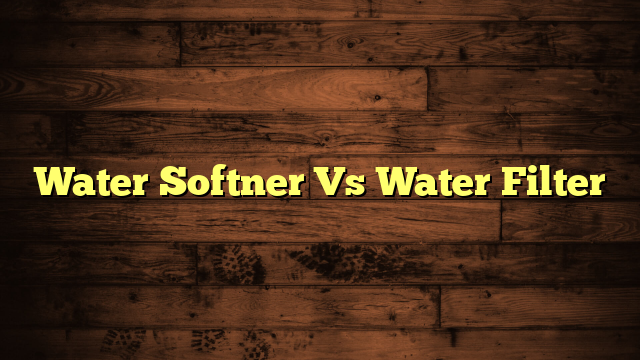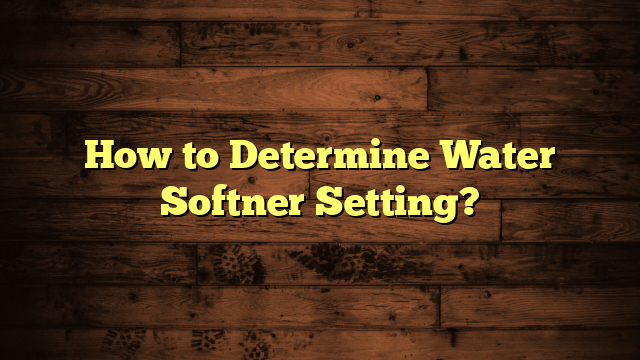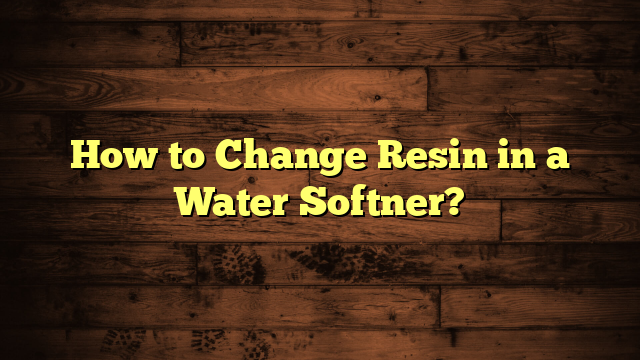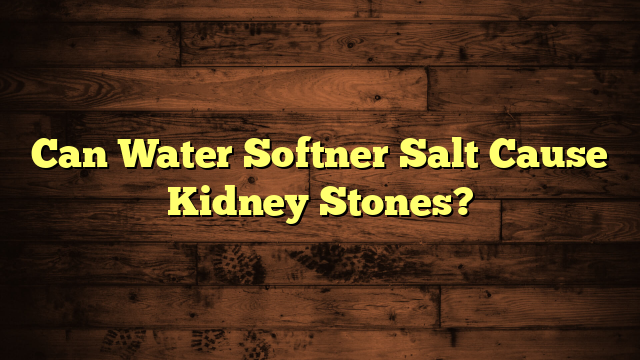Water Softner Vs Water Filter
You might not realize that hard water can actually affect your skin and hair, in addition to your appliances. When it comes to improving your water quality, you've got two primary options: water softeners and water filters. Each serves a specific function, but the decision isn't always straightforward. Should you focus on tackling mineral buildup or filtering out contaminants? The answer could greatly impact your daily life and water usage, so it's worth exploring the nuances between these two systems.
Key Takeaways
- Water softeners primarily address hard water by removing calcium and magnesium, while water filters remove contaminants for safe drinking water.
- Softening systems use ion exchange to replace hardness minerals with sodium, whereas filters utilize various methods like activated carbon and reverse osmosis.
- Regular maintenance for water softeners includes salt replenishment, while filters require periodic cartridge replacements based on usage.
- Softened water enhances daily activities, while filtered water improves taste and safety by removing impurities and pathogens.
- Consider long-term costs, maintenance efforts, and specific family health needs when choosing between a water softener and a water filter.
Understanding Water Quality Issues
When it comes to water quality issues, many people face a variety of concerns that can affect their daily lives. You mightn't realize it, but the water you use at home can harbor various water contaminants. These contaminants can stem from numerous sources, including chemicals, heavy metals, and microorganisms. Understanding these issues is essential for your health and well-being.
Poor water quality can lead to a range of health problems, from gastrointestinal issues to more serious conditions caused by prolonged exposure to harmful substances. You may notice signs of water quality issues through changes in taste, smell, or appearance. Cloudy or discolored water often indicates the presence of contaminants that may not be immediately visible.
To address these concerns, it's important to test your water regularly. Home testing kits can help you identify specific water contaminants, giving you the information needed to make informed decisions.
What Is a Water Softener?
A water softener is designed to reduce hardness in your water, making it easier on your pipes and appliances.
It works by exchanging calcium and magnesium ions, which cause hardness, for sodium ions, ultimately improving water quality for daily use.
Purpose of Water Softeners
Water softeners play an essential role in improving the quality of your household water. When you have hard water, it means your water contains high levels of minerals, like calcium and magnesium. These minerals can lead to mineral buildup in your pipes and appliances, causing inefficiency and even damage over time.
By using a water softener, you can effectively reduce these mineral levels, resulting in softer water that's easier on your plumbing and household items.
Softened water doesn't just prevent mineral buildup; it also enhances your daily activities. You'll notice that soap lathers better, and your skin feels smoother after washing.
Furthermore, your laundry will appear brighter and cleaner, as softened water prevents dinginess caused by mineral deposits.
Moreover, using a water softener can extend the life of your appliances, such as dishwashers and water heaters, by preventing scaling. This means fewer repairs and replacements, saving you money in the long run.
To conclude, water softeners provide numerous benefits that enhance your home's water quality, making daily tasks easier while protecting your investments.
How They Work
Many homeowners wonder how a water softener actually works. At its core, a water softener uses the principles of water chemistry to remove hardness-causing minerals, primarily calcium and magnesium. These minerals can lead to scale buildup in pipes and appliances, reducing their efficiency.
The process typically involves ion exchange, where hard water passes through a resin bed filled with sodium ions. As the hard water flows through, calcium and magnesium ions are attracted to the resin and swapped out for sodium ions. This effectively softens the water.
After a period of time, the resin becomes saturated with calcium and magnesium, requiring regeneration. During this stage, a brine solution, rich in sodium, flushes through the resin, restoring its ability to soften water.
While water softeners address hardness, they differ from water filters, which use various filtration methods to remove contaminants and impurities. Filters target issues like bacteria, chlorine, and sediment, ensuring your drinking water is clean and safe.
Understanding these differences can help you choose the right system for your home, ensuring both comfort and quality in your water supply.
How Water Softeners Work
Water softeners work primarily through a process called ion exchange, where hard minerals like calcium and magnesium are swapped out for sodium ions.
This process guarantees that your water is free from the scale buildup that can damage appliances and plumbing.
Furthermore, the regeneration cycle resets the system, allowing it to continue effectively softening your water over time.
Ion Exchange Process
When hard water flows through a water softener, it undergoes a transformative process known as ion exchange. This process is essential for reducing water hardness, which can lead to scale buildup in pipes and appliances.
During ion exchange, the calcium and magnesium ions in hard water are swapped with sodium ions from the resin beads inside the softener. As you turn on your tap, the softened water contains fewer of those troublesome minerals, making it friendlier for your home and health.
Here's a simple breakdown of the ion exchange process:
| Before Ion Exchange | After Ion Exchange |
|---|---|
| High in calcium | Low in calcium |
| High in magnesium | Low in magnesium |
| High water hardness | Low water hardness |
Regeneration Cycle Explained
The regeneration cycle is an essential process that allows your water softener to maintain its effectiveness over time. After a certain period, the resin beads in your softener become saturated with hard minerals, and that's where the regeneration cycle comes into play.
During this cycle, your system uses a brine solution, a concentrated saltwater mix, to flush out these minerals and recharge the resin beads.
Regeneration frequency varies based on your water usage and the hardness of your water supply. Typically, softeners regenerate every few days or weekly, but you can adjust this setting according to your needs.
When the cycle begins, the brine solution flows through the resin tank, displacing the hard minerals, which are then washed away. Following this, a rinse phase guarantees any leftover brine is cleared out, keeping your system clean and efficient.
What Is a Water Filter?
A water filter is a device designed to remove impurities and contaminants from your drinking water, ensuring it's clean and safe for consumption. With growing concerns about water purity, many people are turning to various filtration methods to improve the quality of their water. By using a water filter, you can reduce harmful substances and enhance the taste of your water.
Here's a quick overview of common types of water filters and their features:
| Filtration Method | Description |
|---|---|
| Activated Carbon | Removes chlorine and odors |
| Reverse Osmosis | Eliminates most contaminants |
| UV Filters | Kills bacteria and viruses |
| Ceramic Filters | Traps sediment and pathogens |
| Ion Exchange | Softens water and removes metals |
These filtration methods vary in effectiveness and application, so understanding each can help you choose the best one for your needs. Whether you're concerned about microplastics, chemicals, or general taste, a water filter can greatly improve your drinking experience. By investing in a quality filter, you're taking an essential step toward better health and hydration.
How Water Filters Work
Water filters operate by using various mechanisms to remove impurities from your drinking water, guaranteeing it's safe and pleasant to consume. Different filter types employ distinct filtration methods to tackle various contaminants, making it vital to choose the right one for your needs.
Here's a quick look at how these systems work:
- Activated carbon filters absorb chemicals and improve taste.
- Reverse osmosis pushes water through a semi-permeable membrane, removing dissolved solids.
- UV filters use ultraviolet light to kill bacteria and viruses.
- Ceramic filters trap bacteria and sediment, providing a physical barrier.
- Ion exchange removes hard minerals, softening the water.
Each method effectively targets specific contaminants, so understanding your water quality is essential. By selecting a filter based on your water's needs, you can guarantee that you're drinking clean, safe water.
Key Differences Between Systems
When comparing water softeners and water filters, it's crucial to grasp their distinct purposes and functionalities.
Water softeners primarily tackle water hardness by removing minerals like calcium and magnesium. This process helps prevent scale buildup in your pipes and appliances, ultimately improving their lifespan and efficiency.
On the other hand, water filters focus on improving water quality through various filtration methods, which can eliminate contaminants such as chlorine, bacteria, and heavy metals.
You'll notice that while both systems enhance your water, they serve different needs. If your main concern is hard water issues, a water softener is your best bet. However, if you're worried about impurities and taste, a water filter will be more effective.
Furthermore, water softeners usually require salt for regeneration, while water filters often need replacement cartridges to maintain peak performance.
Understanding these key differences can help you make an informed decision about which system aligns with your specific needs.
Whether you want to soften water or filter out unwanted substances, knowing their functions will guide you toward the right choice for your home.
Choosing the Right Solution
Deciding between a water softener and a water filter depends on your specific needs and water quality issues. Start by evaluating your home's water hardness. If you notice scale buildup on faucets or in appliances, a water softener might be your best choice.
However, if you're concerned about contaminants like chlorine or lead, a water filter will be more effective.
Here are some factors to reflect on:
- Water Hardness: Test your water to determine its hardness level.
- Contaminants: Identify what's in your water to select the right filter.
- Maintenance Needs: Reflect on how much time you can dedicate to filter maintenance.
- Budget: Compare initial costs and ongoing maintenance expenses for both systems.
- Lifestyle: Think about your family's health needs and preferences.
Choosing the right solution is about balancing these factors. If you're struggling with hard water and mineral buildup, go for a softener.
But if clean drinking water is your priority, a filter is the way to go. Ultimately, understanding your specific water quality will guide you to the best choice for your home.
Frequently Asked Questions
Can I Use Both a Water Softener and a Water Filter Together?
Yes, you can use both a water softener and a water filter together. Just verify system compatibility to maintain ideal water quality. They each serve different purposes, enhancing your water's overall effectiveness for various needs.
How Often Do I Need to Replace Water Filter Cartridges?
You should replace water filter cartridges based on filter lifespan, which varies by cartridge types. Generally, it's every six months to a year, but always check the manufacturer's guidelines for specific recommendations for your filters.
Do Water Softeners Remove Bacteria and Viruses?
Water softeners don't remove bacteria or viruses; they focus on improving water quality by reducing hardness. For effective bacteria removal, you'll need a water filter or purification system specifically designed to address those contaminants.
Are There Maintenance Costs Associated With Water Filters?
Oh, sure! Water filters practically beg for maintenance. You'll love the cost comparison: regular replacements and cleaning add up. So, get ready for that charming maintenance frequency; it's like having a pet, minus the cuddles!
Will a Water Filter Improve Taste and Odor of Water?
Yes, a water filter can considerably improve your water's taste and odor. It effectively removes impurities, providing taste enhancement and odor removal, making your drinking experience more enjoyable and invigorating with every sip you take.
Conclusion
In the battle of water quality, choosing between a water softener and a water filter isn't just about preference; it's about your unique needs. While softeners tackle hard water, filters fight off impurities. So, ask yourself: do you want to enhance your appliances' lifespan or guarantee safe drinking water? By understanding these systems, you can make an informed choice that fits your lifestyle perfectly. After all, clean and soft water isn't just a luxury; it's essential for your health and home.







